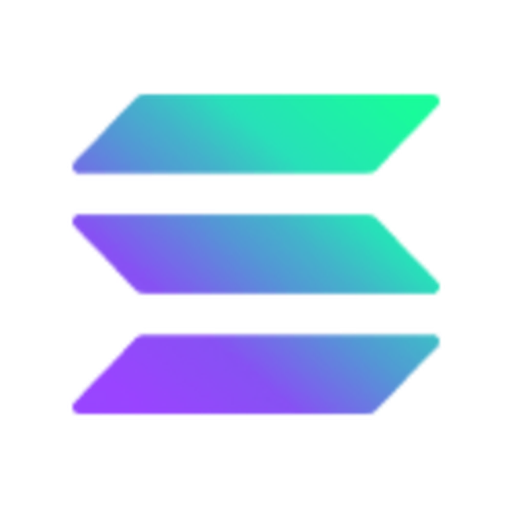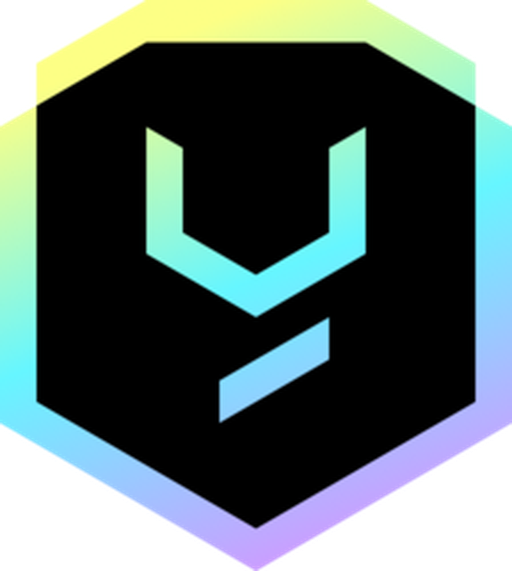Solana vs Yield Guild Games – Price, Market Cap & Performance Compared
Which coin performs better – Solana or Yield Guild Games?
We compare the current price (211.95 $ vs 0.18882 $), market cap (115 139 188 576 vs 113 095 596) and all-time high (293.31 vs 11.17).
Find out which one stands out right now!
Solana is currently trading at 211.95 $, while Yield Guild Games stands at 0.18882 $. These cryptocurrencies differ not only in price but also in market presence.
The market cap of Solana is around 115 139 188 576, and Yield Guild Games has about 113 095 596. Their respective all-time highs are 293.31 for Solana and 11.17 for Yield Guild Games.
Daily trading volume and the 24h price change (-1.06296 % vs -0.76722 %) also offer key insights.
Compare all metrics now and see which coin fits your investment strategy best!
Solana
Solana is an advanced blockchain platform that has quickly gained traction due to its high-speed and low-cost transactions. Its architecture is designed to handle thousands of transactions per second, which positions it as a strong competitor in the decentralized finance space. As developers continue to build on its network, Solana is poised to support a diverse range of applications, making it a significant player in the cryptocurrency ecosystem.
more informationYield Guild Games
Yield Guild Games is a pioneering player in the play-to-earn gaming ecosystem, connecting gamers with opportunities to earn rewards through blockchain-based games. This token facilitates decentralized governance, enabling users to have a voice in the development and direction of gaming projects within the guild. By creating a virtual economy that bridges the gap between blockchain gaming and real-world assets, Yield Guild Games is revolutionizing how gamers interact with digital platforms.
more information

|

|
|
|
|
General Information |
|
|---|---|
|
Title
Solana
|
Title
Yield Guild Games
|
|
Symbol
sol
|
Symbol
ygg
|
|
Whitepaper
-
|
Whitepaper
|
|
Website
|
Website
|
|
Community
-
|
Community
|
|
Last Updated
2025-09-24 23:29
|
Last Updated
2025-09-19 05:28
|
Price Data |
|
|---|---|
|
Current Price $
211.95 $
|
Current Price $
0.18882 $
|
|
High 24h
216.29 $
|
High 24h
0.20390 $
|
|
Low 24h
206.33 $
|
Low 24h
0.18736 $
|
|
Price Change 24h
-2.27718 $
|
Price Change 24h
-0.00146 $
|
|
Price Change % 24h
-1.06296 %
|
Price Change % 24h
-0.76722 %
|
Market Data |
|
|---|---|
|
Market Cap
115 139 188 576
|
Market Cap
113 095 596
|
|
Total Volume
8 426 373 441
|
Total Volume
66 466 275
|
|
Market Cap Change 24h
-1 726 644 361
|
Market Cap Change 24h
-506 513
|
|
Market Cap Change % 24h
-1.47746 %
|
Market Cap Change % 24h
-0.44587 %
|
|
Return on Investment (ROI)
-
|
Return on Investment (ROI)
-
|
Supply and Availability |
|
|---|---|
|
Circulating Supply
543 390 185
|
Circulating Supply
596 467 402
|
|
Total Supply
610 459 596
|
Total Supply
999 716 414
|
|
Max Supply
-
|
Max Supply
1 000 000 000
|
Historical Data |
|
|---|---|
|
All Time High (ATH)
293.31
|
All Time High (ATH)
11.17
|
|
ATH Change %
-27.78745 %
|
ATH Change %
-98.30398 %
|
|
ATH Date
2025-01-19 11:15
|
ATH Date
2021-11-20 16:49
|
|
All Time Low (ATL)
0.50080
|
All Time Low (ATL)
0.12560
|
|
ATL Change %
42 194 %
|
ATL Change %
50.85518 %
|
|
ATL Date
2020-05-11 19:35
|
ATL Date
2023-06-10 04:36
|
Solana
The Rise of Solana: A Deep Dive into the Blockchain Superstar
Solana (SOL) has emerged as one of the most prominent blockchain platforms in recent years, showcasing impressive growth and technological advancements. Known for its high-speed transactions and low fees, Solana has become a favorite among developers and investors alike. This article aims to explore the unique features of Solana, its historical performance, as well as its future prospects.
Key Features Setting Solana Apart
Solana's key selling point is its ability to process transactions at lightning speed compared to other blockchains. It utilizes a unique consensus mechanism known as Proof of History (PoH), which enables the network to handle thousands of transactions per second (TPS), a feat unmatched by many other blockchains. This innovation allows for scalability without compromising on speed or cost, making Solana an attractive option for decentralized applications (DApps) and decentralized finance (DeFi) projects. Additionally, the low fee structure further enhances its appeal in the crypto space.
Advantages of Solana
One of the main advantages of Solana is its scalability. As the demand for blockchain technology grows, the need for scalable solutions becomes more critical. Solana's architecture allows for rapid scaling, positioning it as a robust platform for future expansion. Furthermore, Solana boasts an active developer community that continuously contributes to its ecosystem, resulting in a diverse range of applications and services being built on the network. The high throughput and low transaction costs make it an ideal environment for developers, encouraging innovation across various sectors.
Challenges and Criticisms
No technology comes without its set of challenges, and Solana is no exception. One of the criticism often aimed at Solana is its level of decentralization. Critics argue that the network's reliance on a limited set of validators potentially undermines its decentralized ethos. Additionally, like other emerging technologies, Solana faced network outages in the past, raising concerns about its reliability and stability during high-stress periods of network activity.
A Look Back: Solana's Historical Performance
Solana's journey began in 2020 when it was introduced to the crypto world. Its price hit an all-time low (ATL) of $0.500801 in May 2020. The blockchain quickly garnered attention, and by November 2021, it reached an all-time high (ATH) of $259.96. Solana's price movements during these years reflect the broader market sentiment and growing interest in scalable blockchain solutions. Despite experiencing significant market volatility, including a notable price correction from its ATH, Solana has maintained a strong market presence.
Future Prospects of Solana
As we look to the future, Solana's prospects seem promising. Its growing ecosystem, coupled with continuous technological improvements, positions it well to capture a significant share of the blockchain market. The platform's focus on scalability and efficiency will likely drive more developers and projects to choose Solana as their preferred blockchain network. Furthermore, ongoing partnerships and integrations suggest a positive trajectory for Solana, allowing it to compete with other major blockchains in the years to come.
In conclusion, Solana represents a significant development in the crypto landscape, distinguished by its speed, scalability, and low-cost transactions. While the network faces inherent challenges that accompany any young and rapidly growing technology, the potential for innovation and adoption remains substantial. As Solana continues to evolve, it will undoubtedly be a crypto story worth following closely.
Yield Guild Games
Introduction to Yield Guild Games
Yield Guild Games (YGG) is more than just a cryptocurrency; it's a decentralized gaming guild that invests in non-fungible tokens (NFTs) utilized in virtual worlds as part of the booming GameFi industry. Founded in 2020 by Gabby Dizon, Beryl Li, and OMG Network co-founder Paul Veradittakit, YGG seeks to maximize the value extracted from virtual worlds. With gaming as a pivotal focus, YGG leverages the Play-to-Earn (P2E) model to create a sustainable and rewarding ecosystem for its users.
The Evolution of YGG: A Historical Overview
Since its inception, the YGG token has experienced significant fluctuations, reflective of both the volatility of the GameFi sector and the broader crypto market trends. Hitting its all-time high at $11.17 in November 2021, YGG rapidly gained attention as part of the GameFi boom. However, like many crypto assets, it was not immune to the dramatic market downturns, falling to an all-time low of $0.125601 in June 2023. This history underscores the speculative nature of this token and its sensitivity to market sentiments.
Advantages of Investing in Yield Guild Games
One of the prime advantages of YGG is its strategic placement within the NFT and P2E markets, both of which continue to evolve with new innovations and user engagement. YGG is at the forefront of the GameFi movement, appealing to both crypto enthusiasts and gamers alike. The diverse applications and participation incentives within the YGG ecosystem generate interest and sustainability.
Moreover, YGG's concept of a community-driven investment pool for NFTs represents a fascinating model that combines elements of traditional gaming and finance. The opportunity for gamers to earn while participating in their favorite games makes this an attractive proposition.
Challenges and Disadvantages of YGG
Despite its potential, investing in YGG is not without risks. The GameFi sector, while promising, is still in its nascent stage. Its high volatility is both an opportunity and a challenge, with significant swings in token prices illustrated by YGG's dramatic rise and fall.
Regulatory concerns also loom large over the entire crypto ecosystem, including NFTs and gaming applications. Any regulatory crackdown could severely impact YGG's operations and profitability, potentially affecting its investor base.
Future Outlook for YGG
Looking ahead, the fortunes of YGG will likely be tied to the broader evolution of the GameFi sector and the NFT markets. If gaming and virtual reality spaces continue to grow, Yield Guild Games could be a major beneficiary given its strong positioning and user base.
Investors are optimistic that Yield Guild Games will diversify its partnerships and expand its footprint across multiple gaming ecosystems. The continuing growth in gaming adoption and technological advances in blockchain could provide a fertile ground for YGG's rebound and future success.
Conclusion
Yield Guild Games represents an exciting intersection of gaming and decentralized finance, pushing the boundaries of digital asset utilization. While it embodies great promise within an innovative space, potential investors should weigh these opportunities against the inherent risks and volatility. As part of a diversified portfolio, YGG may offer substantial rewards, but it requires careful consideration and strategic foresight.

